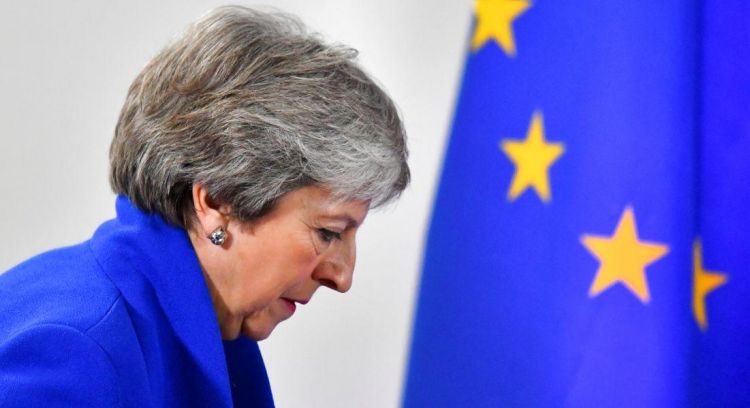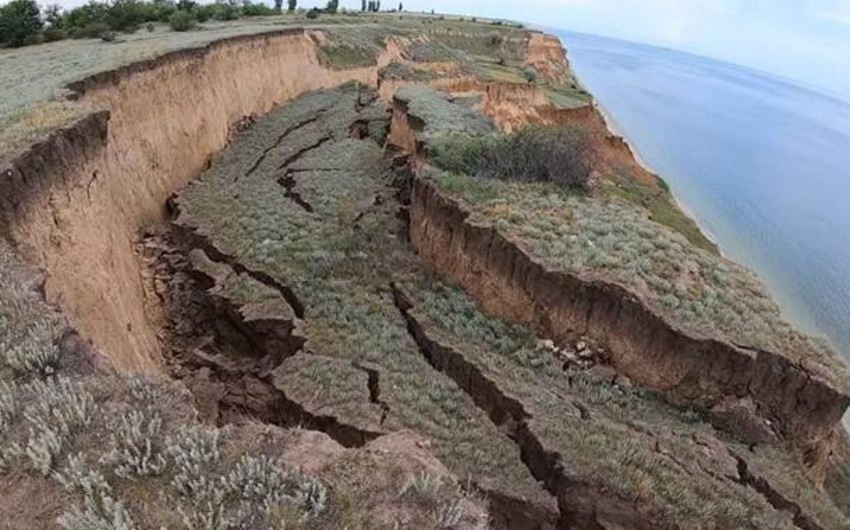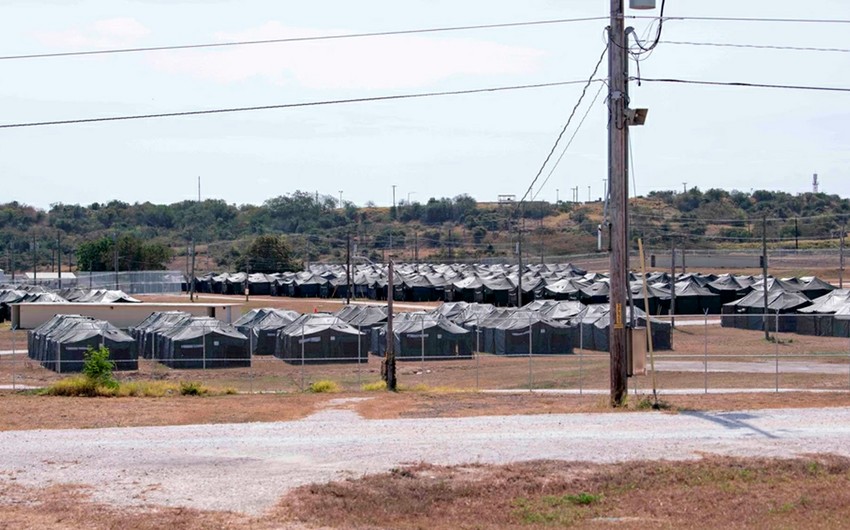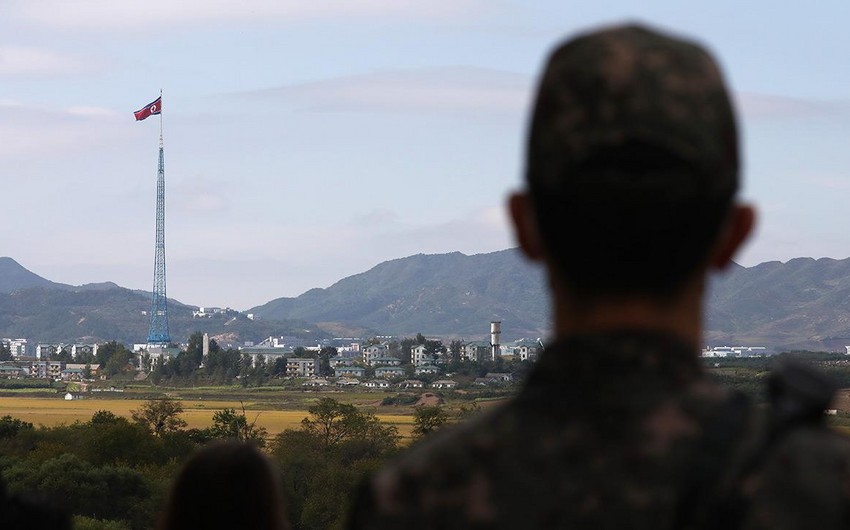I recall Henry Kissinger making a speech in London in the late 1980s. He started by saying that when Adam and Eve were expelled from the Garden of Eden, Adam turned to Eve and said, “You know my dear; we are living in an Age of Transition.”
That can be said of any period but, by any standards, today’s world is exceptional.
My own country, the United Kingdom, will, in May of next year, leave the European Union, which it has been a part of for almost half a century. The outcome remains unclear, but we know that the future will not be what it used to be.
The United States is experiencing the presidency of Donald Trump, an administration unique in almost 250 years of American history.
China has ended a thirty-year period during which the United States was the world’s only superpower. Whether it will challenge the United States for global supremacy will have consequences not just for those two countries but for the world as a whole.
In Russia, for better or for worse, we have seen under Vladimir Putin, the end of the global impotence it has experienced since the collapse of the Soviet Union. It may not be a superpower like the Soviet Union, but it cannot be ignored.
Are these developments disparate and accidental? Or is there a common thread? To understand this better one must go back to 1989 and the fall of the Berlin Wall. It is remarkable that that occurred exactly two hundred years after the fall of the Bastille in 1789, which ushered in the French Revolution.
In reality, what happened in and after 1989 was not one event but three historic events linked together; and they came with multiple consequences.
First, there was the end of the Cold War, the global struggle between the Soviet Union and the United States, which could have led to World War III and a nuclear holocaust. Today Russia is aggressive, but Putin does not seek to replace the United States as the global superpower.
Second, there was the end of the ideological struggle between communism and capitalism. Communism collapsed because it could not deliver a level of prosperity that came anywhere near to that taken for granted even by people of modest means in Europe and North America.
It was remarked that communism only worked either in heaven where they did not need it or in hell where they had it already.
Today capitalism and market economics are applied throughout the world even if, in the People’s Republic, they are applied “with Chinese characteristics.”
The third consequence of the events of 1989 was the collapse of Europe’s last empire, the Russian Empire. The USSR imploded into fifteen separate states. Today Putin presides over a Russia with borders that have been pushed back and are now similar to those governed by Peter the Great in the 1720s.
That is why Putin, even before he became president, remarked that the collapse of the Soviet Union was the greatest geopolitical disaster of his life. His nostalgia was for the Russian Empire and not for Soviet communism.
The Russian Empire was the last to disappear but that was because it was a different kind of empire to those that had emerged elsewhere in Europe. The British, Spanish, Portuguese, French and Dutch states became empires by conquering territories in Asia, Africa and the Americas. When these colonies and dependencies won their independence, their success reduced the prestige and global power of those countries.
Read more: Theresa May heads for talks with EU leaders after Brexit vote delay
But the British, French, and other states did not feel any more insecure because they no longer controlled parts of Asia or Africa. Russia was different. It had, as a seventeenth-century state, few natural borders. It expanded its territory in order to enhance its own security and, like the Romans, had to keep expanding in order to protect its earlier conquests.
It has been remarked that whereas Britain had an empire, Russia was an empire. Our struggle with Putin today is because of his desire to win back some of that lost territory, and to dominate what he cannot recover and chooses to call Russia’s near abroad.
The consequence of the dramatic developments after 1989 was, for Europe and for the world, the end of ideology but not the end of history. The reality often is that as one door closes another one slams in your face! Over the subsequent years we have seen the growth of populism, nationalism, and a new generation of authoritarian leaders.
At the turn of the century it seemed that globalism, democracy and liberal values had been triumphant. But just as the Reformation led to the Counter Reformation in the sixteenth century we are now experiencing a reaction. That does not mean the world is going back to where it was. It may mean that it has moved two steps forward and is now moving one step back.
Whatever the merits of Brexit it cannot be denied that the United Kingdom is about to move back as it leaves the European Union.
Many wonder why, when Euroscepticism is to be found throughout Europe, the UK is leaving the European Union—alone.
There is a reason. It has got little to do with isolationism, nationalism or nostalgia for the British Empire. It has everything to do with Great Britain’s historical experience and its island geography.
The twentieth century was terrible for Europe. Not only was it the cradle of two world wars. Almost every continental European country saw the destruction of its liberty, in some cases for generations. Germany had Nazi tyranny; Italy had Mussolini’s Fascists; Spain, Portugal and Greece suffered under dictatorship. Poland, the Czechs, and all the countries of Central and Eastern Europe were kept under Soviet political and ideological control for almost half a century. France, Belgium, and the Netherlands—as well as parts of Scandinavia—were conquered and occupied by Hitler during the World War II.
The European Union was not just created to ensure that never again would the nations of Western Europe go to war with each other. It was also created to bring about a new Europe that embraced democracy and the “rule of law.” Many Europeans have accepted a reduction in their sovereignty and a growing supranationalism, a European currency, an end to control of national borders, and other aspects of European integration. They agreed to these changes not just because the outcome was desirable but because it was worth paying any price to ensure that they never again lost their liberty or were governed by tyrannical regimes.
Such considerations are respected by the British public but do not carry the same weight as a reason for the UK transferring powers to Brussels. Britain has been a very lucky country. It is an island nation that has never been conquered or invaded since William the Conqueror in 1066, almost a thousand years ago. Its parliamentary system and rule of law have not been destroyed since Oliver Cromwell in the seventeenth century.
As a result, you cannot persuade the British public (no more than you can persuade the Swiss) that sharing sovereignty on domestic issues is anything other than a loss of self-government and accountability unless there are major benefits that would fully compensate for it.
These benefits must be real and not just theoretical. Thus, Margaret Thatcher was prepared to reduce the sovereignty of Britain to help create the internal market in the EU. Likewise, the UK did not have the same problems as the French in allowing the United States to have command of all forces allocated to NATO in peacetime. In both cases a degree of supranational jurisdiction was seen as sensible.
General de Gaulle was right when he said while vetoing Britain’s membership of the Common Market in the 1960s: “Of course Britain is a European country, but it is a different kind of European country.”
Now that Britain is to leave the EU one of the most important challenges is to ensure that the UK, France, Germany, and the rest of Europe continue to work together on major issues of foreign policy. To date, the negotiations have been about trade, budgetary issues, and the rights of EU citizens in the UK after Brexit. These are important issues. But Europe’s contribution to global foreign policy is what the United States cares about—and the rest of the world will notice.
I voted Remain in the referendum because I was concerned that the fragmentation of the EU might weaken Europe’s voice in the wider world. That could still happen, but we must ensure that it does not.
When the British prime minister says that Britain is leaving the European Union—but not leaving Europe—that is not empty rhetoric. For the last three hundred years, long before the EU was created, Britain, despite being an island offshore to the rest of Europe, has always joined with other European nations in resisting tyranny.
Napoleon hoped that Britain would remain neutral when he set out to dominate Europe. Instead, Britain was his principal foe until his defeat at the battle of Waterloo. As William Pitt said in 1805 “England has saved itself by its exertions and will save Europe by its example.”
In 1914 Britain declared war on Germany when it invaded Belgium. The Kaiser, like Napoleon, had hoped that Britain would remain neutral.
In 1939, together with France, Britain declared war on Hitler the day after he invaded Poland. At that time the Soviet Union was an ally of Nazi Germany and the United States remained neutral until the attack on Pearl Harbor.
What will now be needed is for the EU and the United Kingdom to work together on all major foreign-policy issues in the years to come. That will not be difficult if the will is there. Britain as a nuclear weapons state, a permanent member of the UN Security Council, and it has the largest European defense budget in NATO, which is crucial to Europe’s ability to show its strength and purpose.
Read more: EU court ruling boosts Brexit opponents
The UK, of course, will not sit on the Foreign Affairs Council of the EU after May 2019. It will no longer be able to block the EU from deciding on a foreign policy or security initiative that France and Germany have agreed upon. But on the big issues such as Russia sanctions, policy towards Saudi Arabia, or how to deal with China, France and Germany will want to maximize Europe’s influence on the United States, on the UN Security Council, and on the wider international community.
Striving for a common European foreign and security policy is one area where the UK has not been the awkward partner. Britain, France and Germany have a shared view on the Iran Nuclear agreement, on the need to support Ukraine and impose sanctions on Russia, on opposition to the American transfer of their embassy in Israel to Jerusalem, on climate change and in support of a rules-based order.
What, therefore, will be needed is a EU+1 on major issues, which is necessary to maximize Europe’s influence over the rest of the world. There is the precedent of the P5+1 when Germany was invited to join the permanent members of the Security Council in order to put maximum pressure on Iran. The desirability of some arrangement of this sort is not seriously disputed in Paris or Berlin.
Dare I say it, there should be a cautious response to predictions that British influence will plummet as a result of Brexit. When Britain was defeated by the United States in the American War of Independence the Austrian Emperor, in 1783, remarked that “England has descended forever to the rank of a second-rate power like Sweden and Denmark.” That prediction was a little premature and turned out to be the fate of the Emperor’s own country rather than of the United Kingdom.
The implications of Brexit are only one element of the challenges that the United States and the West now face.
In the aftermath of the Cold War many believed that liberal democracy had triumphed over both communism and other forms of dictatorship.
That remains true to a considerable degree. Communism is dead and buried even if China and one or two others still claim allegiance. All of Europe is democratic apart from Russia and Belarus. So, too, is North America and all of Latin America apart from Cuba and Venezuela. India, soon to overtake China in population, is a stable democracy that has been joined in recent years by Indonesia and most of the Far East from South Korea to Malaysia. Even Africa now has a significant number of states with governments that change peacefully, by the ballot box.
Where we were mistaken, however, was in believing that liberal democracy is a single phenomenon. It is not. Hong Kong, as a British colony, enjoyed liberal values and the rule of law but had little democracy. What we are now seeing is that countries can become, or can remain, democratic while diluting or damaging their liberal values. That is what seems to be happening in Poland, Hungary, the Philippines and elsewhere. It is what some people fear could happen, to some degree, in the United States or in Italy. It is what Putin would relish.
The core of liberal values, apart from democratic elections, are the rule of law and respect for the rights of minorities.
We have seen multiple democratic governments, with a mandate from the majority of the electorate, using that legitimacy to damage the independence of judges, to reduce the power of constitutional courts, and to justify diminishing the rights of minorities—either migrants, refugees, or citizens deemed to be critics or opponents of those in power.
Immature democracies, not just dictatorships, sometimes find it difficult, or inconvenient, to respect the equal rights of those who voted against them. Britain must be unique in having, over two centuries ago, designated the government’s main political opponents as Her Majesty’s Opposition in recognition of its legitimate role. In Northern Ireland it was recognition that the Ulster Catholics were a permanent minority who could never win a majority in Northern Ireland that led to institutionalized power-sharing as a result of the Good Friday Agreement. So “majority rule” cannot be used as a justification for the disregard or persecution of the interests of minorities.
Today there are two fundamental threats to the United States, and to the West as a whole. They are the threat to democracy as a system of government and the threat to liberal values. But these two threats are different. The threat to democracy is external. It comes from Russia and China. The threat to liberal values is internal. It comes from within our own countries.
The threat to democracy is not as serious as sometimes suggested. During the Cold War the Soviet Union and its ideology were a real threat to the democratic world. Communism was a global ideology that had its believers and adherents in every country. The Kremlin controlled half of Europe. Central and Eastern European nations were satellites of Moscow, which controlled their social and economic systems as well as their foreign policy.
Today, Russia and China may be self-proclaimed enemies of democracy but neither country has an alternative ideology or set of beliefs that can appeal to the rest of the world.
Putin’s greatest failure has been in modernizing the Russian economy. Russia’s geographical size and military capability make it a formidable opponent, but it is offering little to the world as a whole other than petroleum, arms sales and military support to threatened dictators. Tsar Alexander II once remarked that Russia had only two friends, its Army and its Navy. Today it has been suggested that Russia has only two friends, its oil and its gas.
Putin is a real threat to Ukraine and Georgia, and a potential threat to the Baltic states. He is meddling in the internal affairs of many European countries. But he will fail as long as the West is united and the United States provides unambiguous support to NATO.
China is a more serious challenge because of its economic growth and transformation. It aspires to offer a model of government to Asia, Africa and Latin America based on its own form of state capitalism combined with one party dictatorship.
But, in truth, it is because China has a population of more than a billion that we have become aware of its achievements. China’s economic success, while impressive, has been no greater than that of Japan, South Korea, Taiwan or other Asian countries that achieved similar economic growth years ago. Indeed, China’s achievements remain significantly less than its Asia neighbors who have shown that one can combine prosperity with genuine democratic systems of government. They are more attractive role models for developing countries to follow than is China.
Some see China not only as a new superpower, which it is, but one that aspires to one day replace the United States as the dominant world power. Already China has become the most powerful state in the Far East.
Read more: What Macron did to appease Yellow Vest protesters
But global supremacy will be near impossible for China to achieve. The world has changed fundamentally since the British Empire covered a quarter of the world or since the United States achieved its own global power after 1945.
The British Empire only happened because the Industrial Revolution gave Britain unprecedented economic and naval strength. That led to Britain gaining control over weak, poor, undeveloped countries unable to resist it during the nineteenth century. The United States then replaced Britain; its extraordinary dominance occurred in the twentieth century, after 1945, with a Europe and wider world devastated by World War II.
In contrast, today, all of China’s Asian neighbors are modern, successful states. While they cannot individually compete with China, they are slowly forming new alliances to check Chinese ambition. Thus, India and Japan have joint naval exercises and communist Vietnam is getting closer to the United States than it is to China. India, South East Asia and Japan will balance China’s strength—especially if the United States remains fully committed to the region.
Finally, I turn to the internal threat that we face and that should not be underestimated. Both in the United States and in other democracies there are those who resent the subordination of presidents, prime ministers and government officials to the rule of law.
We have seen this in the United States at the highest level. We had experience in the United Kingdom when our judges were condemned by some MPs and by parts of the media for rulings that curbed the government’s freedom of action in the Brexit negotiations.
Some choose to misunderstand what the rule of law means. When, at the final stages of the negotiations over Hong Kong’s transfer to China, I was in Beijing meeting the Chinese foreign minister, I asked him whether China would guarantee the continuation of the rule of law in Hong Kong.
“Do not worry,” he replied. “We in China also believe in the rule of law. In China the people must obey the law. I pointed out to him that the rule of law did not just apply to the people. It also meant that the government’s actions must be subject to truly independent judges and courts.”
He not only didn’t agree with me, but he hadn’t the faintest idea what I was talking about. In China, as in Putin’s Russia, they do not have the rule of law. They have “rule by law.” The law is used by the government as a means of coercing their population and enforcing obedience. There could be no greater difference between our two sets of values.
This is where the United States and the United Kingdom have a special responsibility to the world. Both countries revere the Magna Carta. It was the foundation of their liberties. In truth, however, Magna Carta was more about the rule of law than about democracy.
The rule of law and liberal values are not just theoretical concepts. The fate of Saudi journalist Jamal Khashoggi and the persecution of tens of thousands of Chinese Muslims in Xinjiang Province are testimony to what can happen when governments are indifferent to the rule of law.
We must not be ambivalent about our commitment to the rule of law—not just in other parts of the world, but also in the United States, in the United Kingdom, and throughout Europe. If we are steadfast, then Western values, which are universal values, will prevail and will win the loyalty of all mankind.
Sir Malcolm Rifkind is a British politician. He served as Britain’s defense secretary and foreign secretary during the 1990s.





.jpeg)




